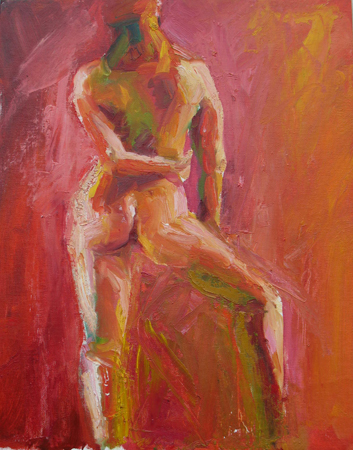‘Save the World in Your Own Time’ is Stanley Fish’s new book. Dean Emeritus of the College of Liberal Arts & Sciences at the University of Illinois, Chicago, he’s written for the New Yorker and writes the ‘Think Again’ blog for the NYTimes. He has interesting things to say about academe and ethics, and the resulting responsibilities of education. The main thrust of the universities, Fish writes, should be ‘the transmission and advancement of knowledge.’ But not opinion. This goes against what many want to claim as a moral imperative to heed current politics or culture in an arena where experienced thinkers are training young minds.Â
Disputing the idea that truth can be subjective, he suggests that in his classes there is no ‘some people say X, but others say Y and who’s to judge dance’. Rather, truth is a value that we must always ‘seek to envision’.Â
The idea that truth can be whatever one wants, is just as much hooey as the idea that everyone is an artist in their own way. Fish asks, ‘what is the truth?’ and not ‘what do you think’ in his classrooms. Anyone has an opinion, but this doesn’t explain or defend the truth. Truth must, as so many would rather not face, ‘stand up against challenges involving the quantity of evidence, the cogency of arguments, the soundness of conclusions, and so forth… Opinion-sharing sessions are like junk food: they fill you up with starch and leave you feeling both sated and hungry. A sustained inquiry into the truth of a matter is an almost athletic experience; it may exhaust you, but it also improves you.’
During discussions about truth, at least one person I know has suggested there is no one truth and can never be. Again, this goes to the heart of analytic critique and how to define value. From where are you getting your information, to what have you compared it, what is the historical reference? To suggest that truth is fluid like mercury, is to maintain no convictions and conduct no real analysis.
When truth is deemed so unnameable, the argument becomes circular, there can be a resistance to delve deeper into language and as a result, critical thought process. The student is ill equipped to do anything but that tired ‘who’s to judge’ dance. And this is exactly what Fish submits is wrong with the teaching system. Too many professors teach content or ideas and not grammar and rhetoric. On writing classes; get back to the basics and teach principles of the English language….and sentence structure. ‘Without a knowledge of how language works they will be unable either to spot the formal breakdown of someone else’s language or to prevent the formal breakdown of their own.’
History does wean out truth, through the process Fish describes. Although we’ve seen that subsequent eras and cultural changes can influence that truth, the means to analyze it remains clear.Â
Fish has gotten a lot of flack for his argument against judgements in academia. For example, he refuses to agree that the university has any place in a political stance. Dissecting ideas is one thing, recommendations are another.
after all that, one new piece.

